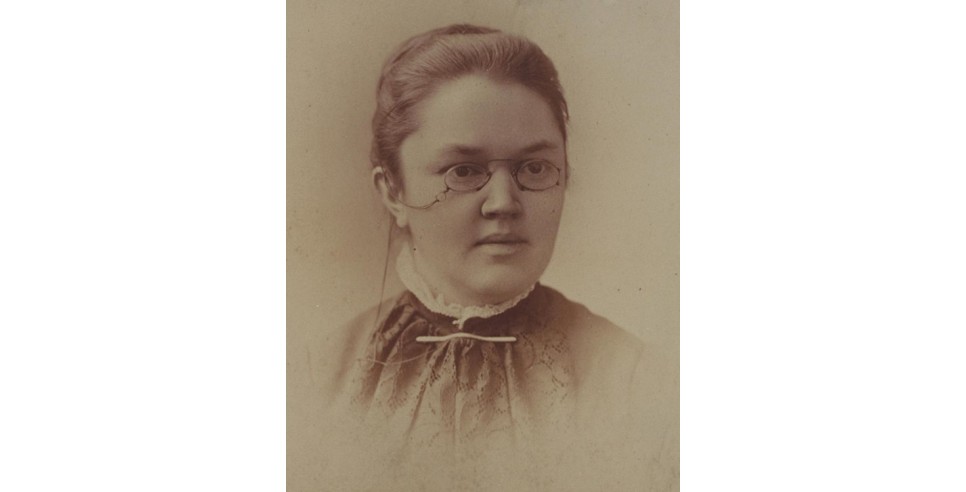
Before Superbowl LVIII kicks off this year, an opening program will feature not one, not two, but three songs of national significance.
There will be “The Star-Spangled Banner,” the United States’ officially designated national anthem, of course, sung this year by country superstar Reba McIntire.
“Lift Every Voice and Sing” also will be performed ahead of the game. Sometimes referred to as the Black national anthem, this song was written at the turn of the 20th century for a memorial celebration of Abraham Lincoln’s birthday. More than a century later, in the aftermath of George Floyd’s murder in 2020, the NFL adopted the practice of including this hymn in some of the league’s pre-game ceremonies to “help to bring unity to a nation in need of healing.”
The third song to be sung in the Super Bowl pre-game program is “America the Beautiful,” a perennial favorite in the nation’s canon of patriotic music.
The song was written first as a poem by a young Wellesley College professor. In the summer of 1893, Katharine Lee Bates traveled by train from Massachusetts to Colorado to teach summer school. Along the way, she took in the sights – Niagara Falls, the World’s Columbian Exposition in Chicago with its “alabaster cities,” the farmlands of Kansas with their “amber waves of grain” – and finally arrived at the foot of the Rocky Mountains.
The adventurous young woman didn’t stop there – after performing her duties as a visiting lecturer, she embarked on what she called a “merry expedition” to the top of Pike’s Peak. There, in “one ecstatic gaze,” she took in a view that encompassed so much more than a person hailing from the milder-mannered landscape of New England might ever have dreamed of seeing.
But it was more than the spacious skies, purple mountains and fruited plain that moved Bates to poetic expression. A keen observer of society in the midst of the Gilded Age and a proponent for social justice, she identified not only the vast assets of this country, but also its challenges, in her verse.
Now documentary filmmaker John de Graaf and his team are researching Bates’ life as the topic for his next film project. They see her work as a model from which we can learn.
The filmmaker is concerned that in the current political climate, Americans on the Left side of the political spectrum believe that our country’s history is comprised of “an unending litany of America’s sins…. The oppressor versus the oppressed.”
The result, he fears, is that “Many young people today don’t believe the United States has ever done anything just or decent.”
On the other hand, de Graaf points out, there are folks on the Right who “don’t want the warts in our history taught at all…. and don’t acknowledge our flaws, not even slavery.”
In a recent interview he talked about how he hopes to demonstrate that the truth is somewhere in between, because history is complicated – and surprising.
“I’m interested in finding ways to get beyond some of the polarization so we can make some progress and don’t have to deal constantly with extremism on both sides.”
He thinks that Bates might be the key to opening minds. As a poet, she was the author of one of America’s most beloved patriotic songs, after all. But she was also a scholar, a social activist, a peace advocate and a lesbian.
So he’s been studying how Bates bore witness to the gross inequities of her own time – conspicuous consumption by the wealthy, abhorrent working conditions for the poor, mob lynchings of Black men, erasure of Native American ways of life, and imperialism abroad. She didn’t turn a blind eye to any of it.
In fact, more than once she revised her “America the Beautiful” paean to the nation’s natural glories in order to acknowledge also the country’s man-made deficits.
If you read Bates’ flowery verses closely, you’ll see that:
- She counseled against Gilded Age excesses and urged that Americans think more about the welfare of all: “May God thy gold refine / Till all success be nobleness / And every gain divine.”
- The phrase “America! America! / God mend thine ev’ry flaw, / Confirm thy soul in self control,” served as a caution against America’s turn toward imperialism, enforced by military might.
- She reminded us of the ultimate sacrifices Americans made to put an end to slavery and bigotry: “Oh beautiful, for heroes proved / In liberating strife, / Who more than self their country loved / And mercy more than life.”
In creating a documentary around Bates’ life, de Graaf intends to point out Bates’ on-the-ground activism – just a few examples include her work in Boston, establishing a settlement house for immigrants along the lines of Jane Addams’ famous Hull House in Chicago and, later in her life, advocating vociferously for global peace and the formation of the League of Nations.
This underscores de Graaf’s own thesis that American history has included generation upon generation of problem-solvers.
“What we want people to know is that we have a lot of positive history, people who worked to make the United States a better place – and that we should build on that,” de Graaf said. “We are much more likely to change this country if we emphasize the stories of the people who tried to improve the country, and ended up doing so.”
The filmmaker plans to make two versions of his documentary – a one-hour version for public television, and a half-hour version for schools.
He’s already put together a promotional trailer for the show, with the working title of “Loyal to the Truth,” and he’s lining up interviews with historians, musicians and others whose own stories will add to the rich span of experience conveyed by “America the Beautiful.”
At the same time, he is reaching out to possible funders to support production of this film and he anticipates launching a crowdsourcing campaign during Women’s History Month in March.
Keen to ensure that the exemplary life of Katharine Lee Bates not be forgotten, de Graaf notes the irony that, despite penning the lyrics to one of America’s most beloved songs, “She is one of America’s unsung heroes.”
Barbara Lloyd McMichael is a freelance writer living in the Pacific Northwest.









